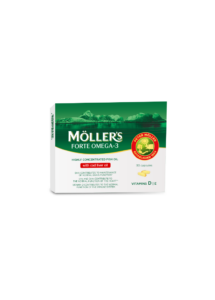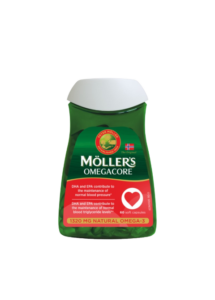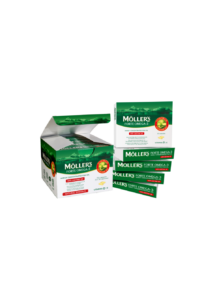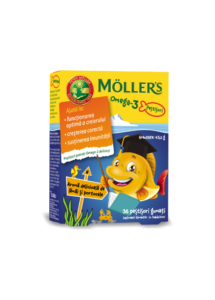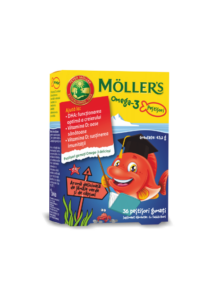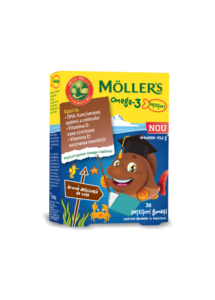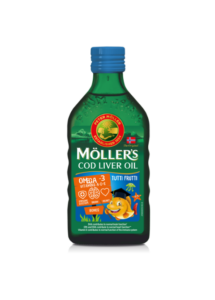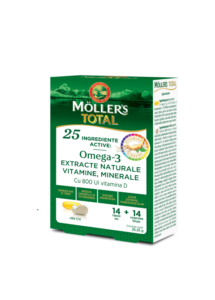Majčino mlijeko sadrži proteine, masti, ugljikohidrate i druge važne hranjive tvari potrebne bebi, ali ne pokriva dnevni unos vitamina D za djecu od 0 do 2 godine koji preporučuje Britansko ministarstvo zdravstva.
Home » Vitamin D za razvoj vaše bebe
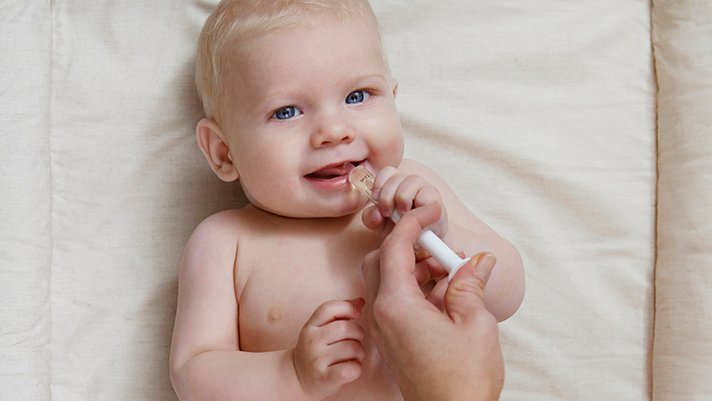
Vitamin D za bebe i malu djecu
Ministarstvo zdravstva preporučuje majčino mlijeko kao jedini izvor hrane tijekom prvih šest mjeseci života bebe. Stoga nije moguće uključiti hranu bogatu vitaminom D, poput masne ribe ili riblje jetre, u prehranu vaše bebe.
Dakle, ako dojite, Ministarstvo zdravstva preporučuje da svojoj bebi dnevno dajete dodatak koji sadrži 8,5 do 10 mikrograma (µg) vitamina D, do dobi od jedne godine. To je bez obzira na to uzimate li sami dodatak vitamina D.
Dojenčadi u dobi od 1 do 4 godine dnevno treba dati dodatak koji sadrži 10 µg vitamina D.
Više o vitaminima i mineralima pročitajte ovdje
Ulje jetre bakalara za bebe
Möller’s je napravio vlastiti proizvod za bebe između 0 i 2 godine dostupnim u ljekarnama. Ovo je ekskluzivni prilagođeni oblik CLO za bebe, s prilagođenom količinom vitamina D i vitamina A. Osim toga, ovaj prirodni dodatak sadrži zdrave količine omega-3 masnih kiselina koje su korisne za bebu.
Bočica Möller’s Pharma My First Cod Liver Oil sadrži ukupno 50 dnevnih doza od 5 mililitara. Jedna dnevna doza također osigurava 10 mikrograma vitamina D, prema preporukama Ministarstva zdravstva. Preporuča se da svojoj bebi date CLO čim četiri tjedna nakon rođenja, ali samo 2,5 ml dnevno, zatim postupno povećavajte do 5 ml tijekom prvih šest mjeseci nakon rođenja. Lako je izmjeriti točnu dozu i njome dati bebu pomoću pametne štrcaljke za doziranje koja dolazi s Möller’s Pharma My First Cod Liver Oil.
Ulje jetre bakalara ili kapi vitamina D za bebe?
U Norveškoj, gdje se proizvodi Möllerovo ulje jetre bakalara, klinička liječnica Randi Kasin savjetuje svim roditeljima da svojoj bebi daju CLO, umjesto kapi vitamina D, tijekom šestotjednog pregleda.
“Kapi vitamina D ne sadrže zdrave omega-3 masne kiseline i mislim da ih je važno dati bebi. Još jedna prednost CLO u usporedbi s kapima vitamina D je što je jeftiniji”, kaže Kasin.
Slijedite poveznicu ispod kako biste pročitali više o njezinim razmišljanjima o CLO, omega-3, vitaminu D i potrebama vaše bebe.
What is good health?
Do you have a good lifestyle?
Lifestyle simply means the way in which you live. Health and lifestyle go hand in hand. You might feel you have a good lifestyle if you are physically active, eat healthily and generally experience a sense of wellbeing. Conversely, if you want good health you should also have a good lifestyle.
Physical activity is the major contributor to a good lifestyle, but diet, drugs, stress, sleep and social conditions are also play an important role. Being able to use the body properly to avoid injury also affects lifestyle. Physical activity can also prevent depression and help you to recover more quickly from mental illness, both of which obviously affect your lifestyle.
Diet can be a difficult topic for many. Perhaps you eat too much or too little or maybe you find it hard to know what foods to combine to have a balanced diet. It’s also important to eat food that contains important vitamins, minerals and dietary fibre, omega-3 and antioxidants. On top of all this, you also need to get enough energy, protein and the correct fatty acids. The requirement for these nutrients changes throughout your life. When you are older you also have different requirements than children and younger adults. Women also have different requirements than men. Pregnant and breastfeeding mothers also have special requirements.
When you get older, you lose muscle mass and your body requires less energy and therefore less food. You may lead a less active life than you did before, which is why you require less food. However, your need for minerals, vitamins and other nutrients remains the same. Of course, there are plenty of healthy and active older people, but when you reach 70 to 80 years of age, it’s easier to become ill, especially during flu season.
Some steps you can take to improve your lifestyle and health are to:
- eat a healthy and varied diet
- stay active
- watch your weight
- avoid too much alcohol and don’t smoke
- get enough sleep
- think positive
- practise good hygiene
What is good quality of life?
The World Health Organisation (WHO) defines quality of life as a state where the individual can realise their potential, cope with normal stressful situations, work in a rewarding and positive way, and be able to contribute to others and society.
Quality of life is a wide and somewhat diffuse concept that includes joy in, and a desire for, life. These are values that are rather felt than measured, which in turn are based on personal environment and choices. Quality of life doesn’t necessarily depend on being healthy or sick. It’s the moments between worries, sorrows, problems and ailments that matter. For example, if you have a chronic illness, a feeling of mastery can be important when talking about quality of life.
To sum up, quality of life is a combination of health, lifestyle, networks and social support. It’s about experiencing joy, meaning in life, satisfaction, security and a sense of belonging, as well as being able to use your strengths. It’s also about feeling interest in life, coping with everyday situations and a being committed to something or someone. If you have good quality of life, you will be able to cope better with the inevitable stressful situations in life.
Naši proizvodi
-
MÖLLER'S FORTE OMEGA 30 kapsule
-
MÖLLER'S OMEGACORE
-
MÖLLER'S FORTE OMEGA 150 kapsule
-
MÖLLER'S OMEGA 3 RIBICE s okusom NARANČE I LIMUNA
-
MÖLLER'S OMEGA 3 RIBICE s okusom JAGODE
-
MÖLLER'S OMEGA 3 RIBICE s okusom COLE
-
MÖLLER'S OMEGA 3 ULJE JETRE BAKALARA s okusom TUTTI FRUTTI
-
MÖLLER'S OMEGA 3 ULJE JETRE BAKALARA s okusom LIMUNA
-
MÖLLER'S TOTAL
Saznajte više
Program vježbanja za starije osobe
ZDRAVE KOSTI ZDRAVO STARENJE
Zdrava prehrana tijekom trudnoće
MOZAK ZDRAVO STARENJE
Dobro zdravlje, način života i kvaliteta života – što sve to znači?
BAKALAR ZDRAVO STARENJE
Pronađite inspiraciju na našem Instagramu
This error message is only visible to WordPress admins
Error: Access Token is not valid or has expired. Feed will not update.
